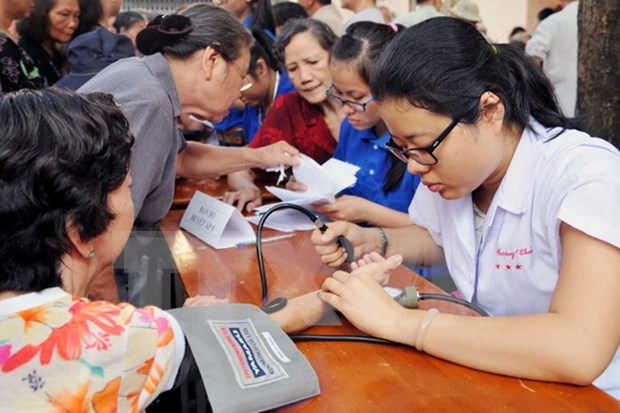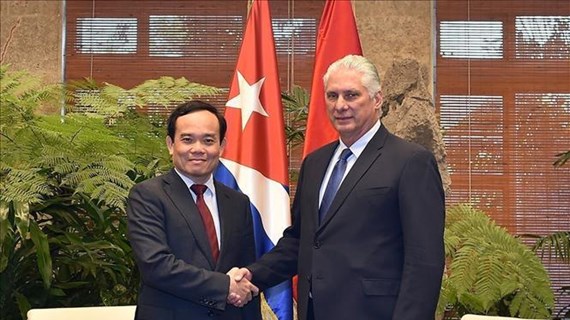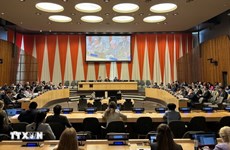Vietnam joins in reducing climate change impacts on public health
Vietnam has called on countries to integrate measures for protecting community health and ensuring the right to food, housing, and education into national climate change response programmes.
 Medical workers give check-ups to the elderly (Photo: VNA)
Medical workers give check-ups to the elderly (Photo: VNA)Geneva (VNA) – Vietnam has called on countries to integrate measures for protecting community health and ensuring the right to food, housing, and education into national climate change response programmes and policies.
The process should focus on gender equality and the rights of vulnerable groups like women, children, the elderly and persons with disabilities, said Ambassador Nguyen Trung Thanh – head of the Vietnamese delegation to the United Nations (UN), the World Trade Organisation and other Geneva-based international organisations.
He delivered a speech at a discussion on a study on the impacts of climate change on the right to health on June 17. The function took place on the fringe of the 32nd session of the UN Human Rights Council (UNHRC) in Geneva, Switzerland.
The discussion drew representatives of the Office of the UN High Commissioner for Human Rights (OHCHR), the World Health Organisation, the UN’s Special Rapporteurs on the right to health and the human rights of migrants. It was also attended by delegates from over 30 countries and many international organisations.
Ambassador Thanh said the multi-dimensional impacts of climate change on the right to health as shown in the OHCHR’s study are also facing Vietnam. They include sea level rise, saltwater intrusion, severe storms and droughts, and a rise in many diseases and the number of patients in the summer.
Vietnam is among the five nations most susceptible to climate change. Some forecasts suggest that by the end of the 21st century, temperatures there may rise by 2 – 3 degrees Celsius ever year, leading to a 1-metre rise in the sea level which, in turn, may respectively flood 40 percent and 11 percent of the area of the Mekong Delta and the Red River Delta.
In that scenario, about 10 – 12 percent of the country’s population will be directly affected and 10 percent of the GDP will evaporate, he noted.
At the discussion, speakers stressed that climate change has been causing severe weather conditions such as prolonged drought and floods and strong heat wave, which affect human health through air pollution, water scarcity, food shortages, and increasing tropical, infectious and mental diseases. Those negative influences can be seen most clearly in vulnerable groups like women, the elderly, children and the disabled, especially in developing countries.
That fact requires stronger political commitments, resources and practical actions of all nations, participants added.
On June 16, the UNHCR held a dialogue with the Special Rapporteur on the right to health to share experience on improving the health on adolescents.
The Vietnamese delegation noted the country’s achievement of almost all health-related Millennium Development Goals. Health care and community health has been at the heart of all public policies, and protecting people’s health is the responsibility of the entire society and political system, not only of the medical sector.
At the dialogue, the Special Rapporteur said there remain numerous challenges to caring for the health of adolescents, who number 1.2 billion globally. Recognising adolescents’ rights is also a way to improve their physical and mental health.
At a dialogue with the Special Rapporteur on extreme poverty and human rights on June 14, the Vietnamese side highlighted the importance of promoting economic, social and cultural rights in eradicating extreme poverty.
As poverty reduction efforts are being threatened by economic recession, natural disasters, epidemics and conflicts, Vietnam called on all countries to take more pragmatic actions to ensure low-income people benefit from socio-economic attainments. It also stressed its willingness to cooperate with and assist other nations in poverty relief.-VNA













